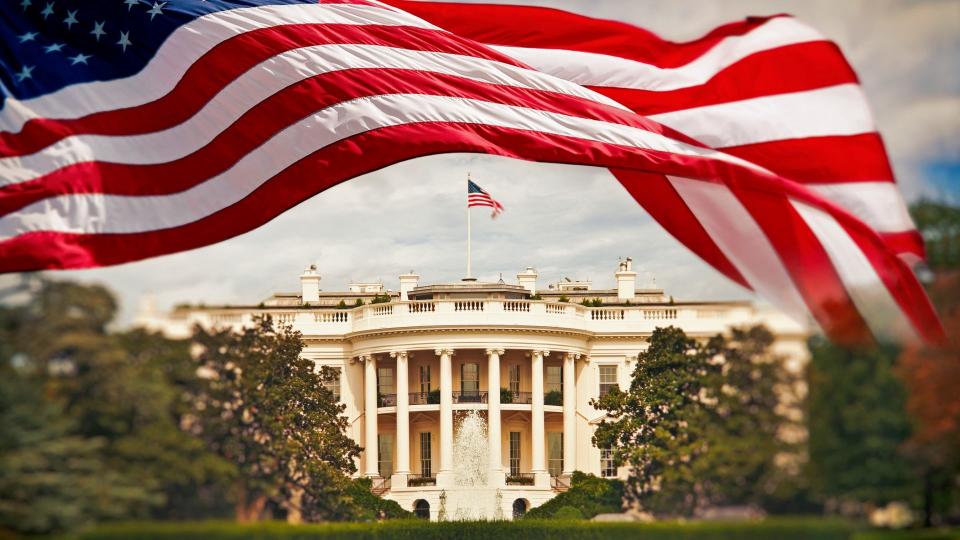3 Ways Today’s Election Anxiety Is Damaging Your Future Retirement

The presidential election is just a few months away, and anxiety around it is causing some investors to rethink their retirement strategies — sometimes not in the most beneficial ways.
A new survey from the Nationwide Retirement Institute found that some investors are “taking potentially adverse actions, and many are doing so without professional guidance.”
Nationwide found that anxiety about the upcoming presidential election is causing 76% of Americans to be “on edge,” with 32% anticipating making changes to their investment allocations based on the still unknown outcome.
Read More: I’m an Economist: Here Are My Predictions for Inflation If Biden Wins Again
Check Out: 4 Genius Things All Wealthy People Do With Their Money
According to Kristi Martin Rodriguez, SVP, The Nationwide Retirement Institute, it’s not surprising to see the presidential election “giving investors heartburn.”
“There is a lot of political noise happening right now that can create anxiety, including a mix of accurate and inaccurate information swirling in the media,” Rodriguez said.
Rodriguez added that this may make it hard for some investors to separate facts that have clear implications for their personal finances from political posturing that is unlikely to justify a shift in their long-term financial plan. And, as the survey found, this can be damaging for retirement.
The survey also found that 78% of Americans rate the U.S. economy overall as poor or fair. And the drivers of this sentiment include inflation, with 80%; wages not keeping up with the cost of living (51%) and high housing costs (50%).
And with these financial burdens, retirement planning has taken a backseat for many of them and causing sometimes knee-jerk reactions that can have a detrimental impact on savers’ futures.
Wealthy people know the best money secrets. Learn how to copy them.
Not Thinking That Retirement Is a Long-Term Plan
Rodriguez noted that in this current climate, it’s important for investors to remember that your plan for retirement is a long-term plan.
“It’s designed to help you achieve a secure retirement, often many years down the road,” she said, adding that when you adjust your actions based on near- or short-term political shifts, you run the risk of disrupting the long-term strategy you put in place to begin with.
She also argued that whether or not the market goes up or down in the next year is less important than where things will be when it’s time for you to begin withdrawing your savings in retirement.
“According to a white paper from Nationwide’s Office of Investment Research, no matter which political party controls the presidency or Congress, stock market performance has been about the same according to historical data,” Rodriguez said.
Not Working With a Financial Professional
She also stressed the importance of working with a financial professional who can help you build a holistic, long-term plan that aligns with your personal retirement goals.
“When investors take a do-it-yourself approach, it can be challenging to adequately plan for things like income, taxes, healthcare, long-term care, Social Security, etc.,” she said.
Investors who work with a financial professional are less likely to have gaps in their plan or miss opportunities to position themselves for retirement security.
“They are also less likely to make consequential mistakes based on emotional reactions to short-term shifts in the political or economic environment,” Rodriguez said.
For instance, the survey found that one in five respondents (19%) indicated that if the party they support wins, they will increase their investing.
But whether they shift to a more conservative or aggressive investing posture, any change could have significant long-term implications, particularly if the action is based on speculation, inaccurate information or simply short-term shifts in policy, Rodriguez said.
“I encourage investors to discuss any significant shift in their investment strategy with a financial professional who can weigh in with a perspective on implications for their long-term plan,” she added.
Explore More: 4 Things Boomers Should Never Sell in Retirement
Not Being Conscious of Emotional Shifts
Rodriguez said that Americans are not only feeling the pinch of inflation on their monthly finances, but they are also feeling discouraged by growing costs to buy or rent a home — a problem made more acute by the highest interest rates we’ve seen in a long time.
“While many traditional measures show our economy is growing with healthy job and investment markets, Americans are feeling the impact of inflation when they go to the grocery store or gas pump and this is driving economic anxiety that’s likely to be a major focus in the months ahead,” Rodriguez said.
She suggested that investors feeling anxious about their finances in an election year should try to be conscious of shifts in emotions both before and after the election and be aware that we all bring biases to the table when making financial decisions.
“Apply a strong filter to election news coverage to maintain an objective understanding of what’s happening,” she said. “Make sure you allow yourself to consider multiple perspectives and news from different types of media outlets before making major assumptions.”
In addition, it’s important to remember that election results in either party’s favor have historically had little impact on future investment returns, she added.
“Stay focused on the fundamental drivers of investment performance, including earnings, revenue growth, profit margins and leading indicators of economic conditions,” Rodriguez said.
More From GOBankingRates
I'm a Bank Teller: 4 Reasons You Should Withdraw Your Savings Right Now
This is The Single Most Overlooked Tool for Becoming Debt-Free
This article originally appeared on GOBankingRates.com: 3 Ways Today’s Election Anxiety Is Damaging Your Future Retirement

 Yahoo Finance
Yahoo Finance 